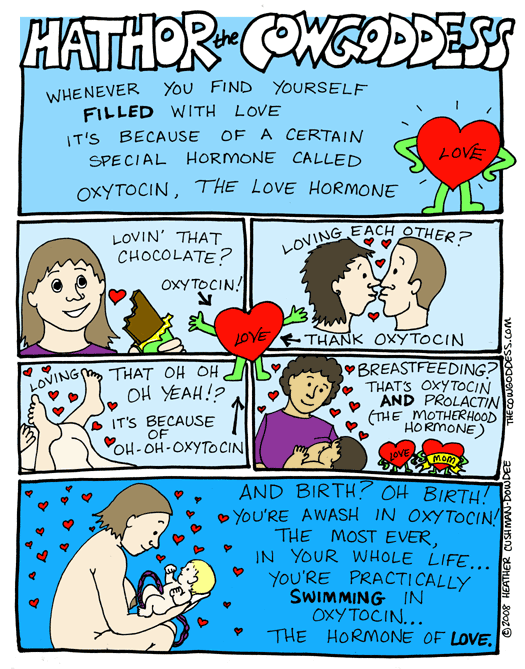Many theists have a hard time imagining how science and evolution could
explain altruism, compassion, and morality. They seem to feel these phenomena
are evidence for either a god or an immaterial spirit only humans possess. Sorry
to burst your bubble, but there have been many advances in our understanding of
these seemingly deity-inspired emotions and behaviors.
Altruism
Why would evolution lead humans, or any other animals for that matter,
to perform selfless actions that would reduce the chance of an individual’s
survival? Well, first off, humans aren’t the only species with the propensity
for this behavior. Here are just a few examples from Wikipedia:[1]
- Bonobos have been observed aiding injured or handicapped bonobos.
- Vampire bats commonly regurgitate blood to share with unlucky or sick roost mates that have been unable to find a meal, often forming a buddy system.
- Dolphins support sick or injured animals, swimming under them for hours at a time and pushing them to the surface so they can breathe.
- Vervet Monkeys give alarm calls to warn fellow monkeys of the presence of predators, even though in doing so they attract attention to themselves, increasing their personal chance of being attacked.
Science has come up with many theories regarding this sort of behavior.
One of the most powerful explanations is that of Kin Selection. Given that
social animals generally live in groups of genetically similar individuals, if
one member sacrifices its life so that the group survives, the genes it shared
with its kin will continue to live on.[2]
Thus, genes that promote helpfulness and selflessness toward one’s in-group
members also get passed on. It is certainly plausible that this inclination toward
kindness to one’s kin could lead to these behaviors being extended to out-group
members as well.
Oxytocin is a hormone secreted in the brain, which has traditionally
been associated with promoting bonding between mother and infant during
childbirth and breastfeeding.[3]
This handy molecule is primarily mammalian, but variants can be found in all vertebrate
animals.[4]
So, how is it the Hippie Molecule? It not only shows up during moments of
bonding, but in experiments it has been shown to promote both trusting and
trustworthy behaviors.[5]
Here’s the reason for the “sort of:” it has also been shown to lead to
hostility toward people who are from different backgrounds.[6]
In a nutshell, oxytocin leads individuals to care for and cooperate with their
own kind, while protecting each other from those who are less familiar.
Mirror Neurons and Empathy
According to Merriam-Webster, empathy is “the action of understanding, being aware of, being
sensitive to, and vicariously experiencing the feelings, thoughts, and
experience of another of either the past or present without having the
feelings, thoughts, and experience fully communicated in an objectively
explicit manner.”[7] Many scientists believe areas of the brain referred
to as “Mirror Neurons” could be behind it. A Mirror Neuron is a neuron in the
brain which fires whenever an individual performs an action or when another
individual performs the same action.[8] For example, if you find yourself wincing while watching men get
hit in the crotch on “America’s Funniest Home Videos,” you can thank your
mirror neurons. These neurons have been observed in humans, other primates, and
birds, and have been linked to facilitating learning and in discerning
intentionality of others’ actions.[9] Without them, Bill Clinton could never have been quoted as saying
“I feel your pain,” nor would we be capable of compassion.[10]
Disgust and Morality
Conclusion
One does not need to explain altruism, compassion, or morality in terms
of the supernatural or even religion. Evolution has provided us with a number
of adaptations that have led to behaviors and emotions which cause us to
cooperate with, and care for, those within our immediate peer groups. It has
also made use of our pathogen-disgust reaction to motivate us to avoid and
punish those who act against the group. While our innate moral inclinations
tend to be in-group focused, it is possible they provide the wiring that allows
us to act morally toward those from different backgrounds.
Resources:
A Great Book on the Science of Morality:
A Good Article on the Evolution of Morality:
Wikipedia on the Evolution of Morality:
http://en.wikipedia.org/wiki/Evolution_of_morality
No comments:
Post a Comment